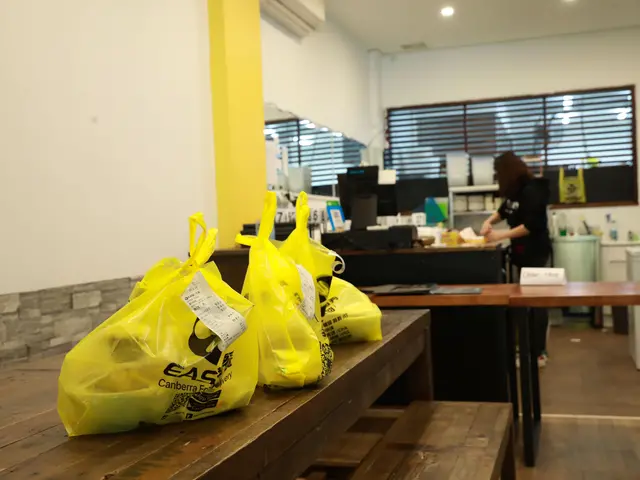In Canberra, when you place an order, you could have hotpot, noodles, milk tea and pancake of different brands served to your home all at the same time for lunch.
This is a new measure taken jointly by some Chinese restaurants to survive the bleak season after the COVID-19 outbreak in Australia.
"The epidemic dealt a heavy blow to hospitality industry. As winter is coming, we have to 'huddle together for warmth'," said Wang Yuxuan.
The 27-year-old man is an owner of the Wukong Hotpot, which was opened last year. Hotpot restaurants were rare in the Australian capital. Therefore, Wukong was immediately bustling with customers.
However, in an attempt to stem COVID-19 in the country, the federal government of Australia on March 23 announced that restaurants and cafes were restricted to takeaway and delivery only.
While Wang found it impossible to put his hotpot into a box and income was hence falling to zero, other restaurants saw a drop of their income as well.
A report by the Nine News last month said that the hospitality industry estimated 88,000 jobs had already gone and 200,000 were expected to go in the coming weeks and months.
Of all the restaurants the Chinese took the brunt due to the early closure of Australian border to the Chinese people and stigma after some local media reports labeled COVID-19 as a "Chinese virus."
The Chongqing Street Noodle, a brand that became famous after it was mentioned in the documentary television series, A Bite of China, saw its revenue reduced by about 70 percent.
It used to have more than 10 full-time and part-time employees, but apart from those who are still in China and some too afraid to come, there are only three or four left.
Chongqing Street Noodle and Wukong Hotpot are both in the Dickson area, which was dubbed the "China Town" of Canberra.
"Owners of the restaurants here all knew each other and we always get together to talk about our business," said 33-year-old Jett Li, owner of the Chongqing Street Noodle.
"While we are suffering losses, the customers have to spend more money on delivery fee," he said. "So an idea occurred to us: why don't we join hands and create a long menu with all our products, so that customers could enjoy a 'one-stop' service?"
Wang agreed. "Suppose you are a regular customer to the noodles restaurant and not familiar with the milk tea nearby, it is a good opportunity for the milk tea shop to promote its products," he said. He is also owner of the bubble tea shop Super Emoji.
Normally in Canberra delivery fee on Uber Eat for one order is between 5.99 and 7.99 Australian dollars (about 3.8 to 5.1 U.S. dollars). Li and Wang decided to deliver the food themselves, with single delivery charge at 5 Australian dollars (3.2 U.S. dollars).
"At first we have five restaurants join in the program, with about 30 employees," Wang said. "Those who don't have to work on shift would take up the responsibility of delivery that day."
They have two employees doing an extra job to keep record of each order. Restaurants would share the delivery charge in accordance with proportion of their products in each order.
There are disagreements, but the restaurants decided to put them aside and give a try.
"The program started a fortnight ago," Li told Xinhua. "It is too early to calculate the exact figure of revenue growth now, but the increase of orders is out of our expectation."
To join in the program, Wukong Hotpot created some new dishes by cooking mixed meat and vegetable. "Now our revenue is about 30 percent of the average in the past," he said.
"Sometimes crisis could be an opportunity as well," he added. "Without the COVID-19 epidemic, we might never have considered doing delivery business and develop new products."
Now that at least six shops joined in the program, neither Wang nor Li knows if the cooperation mechanism could be preserved after the epidemic is over. For now their focus is still to tide over the difficult time.
"The only way to survive is to stick together," said Jett Li. "After all, we are all Chinese."
 简体中文
简体中文

